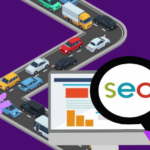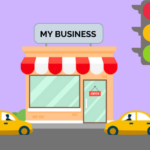If you work in digital marketing or have been using digital marketing services, you’ve probably come across the term “inbound marketing” at least once. Many marketers stress the necessity of inbound marketing as part of their overall digital strategy. While the foundations are simple to comprehend, inbound marketing is a difficult but cost-effective method that allows you to convert customers organically and save money on advertising.
It’s sometimes difficult to keep track of all the marketing options available. Inbound marketing is a strategy for attracting buyers to a product using a combination of content marketing, social media marketing, SEO, and branding.
What is inbound marketing?
Inbound marketing is a type of marketing that focuses on attracting visitors and potential consumers rather than pushing a brand, product, or service outwardly in the hopes of generating leads or customers.
In terms of digital marketing, this involves utilising a variety of marketing platforms, the most prevalent of which are content marketing, search engine optimization (SEO), and social media, in innovative ways to capture people’s attention. Using ‘earned’ and ‘owned’ media, the goal of a successful inbound marketing plan is to improve reach and produce quality traffic, engagement, and conversions.
Inbound marketing is defined as the process of recruiting, converting, closing, and delighting consumers, according to HubSpot. The ‘inbound technique’ is “the greatest strategy to turn strangers into clients and promoters of your brand” by employing various sorts of information at various phases of the buying cycle.
Inbound marketing vs outbound marketing
The name is the key to understanding the differences between inbound and outbound marketing. Inbound marketing is concerned with attracting potential customers, whereas outbound marketing is concerned with pushing a company’s offering publicly. Outbound marketing is about purchasing attention, but inbound marketing is about gaining it.
Inbound marketing | Owned and Earned Media
Inbound marketing uses owned and earned media to engage potential customers in creative ways.
Owned media refers to channels that are under the control of a company. Your website, blog, social media profiles for your brand, product landing pages, and YouTube channel, for example. You get to decide what to publish, how to publish it, and when to publish it.
Earned media is the coverage you get as a result of your hard work. Offline, this includes traditional newspaper and magazine coverage. It includes mentions on social media, use of a campaign hashtag, conversations in online forums, and online reviews, all of which are commonly earned through digital PR. Earned media is more difficult to control, but it should be a reward for the effort you’ve put into your inbound marketing plan.
Outbound marketing | paid media
Outbound marketing, on the other hand, is more commonly connected with paid media. This could include traditional offline advertising, pay-per-click (PPC) and display advertising, as well as paid emails.
Paid media also includes social media advertising, such as Facebook ads and boosted Twitter postings.
Although most people identify social media advertising with outbound marketing, it’s worth mentioning that it can help inbound marketing initiatives perform better. For example, advertising on Facebook allows you to promote your content and campaign to your target demographic, regardless of how niche it is.
How Inbound Marketing Works?
To develop lasting interactions with leads and consumers, the inbound methodology relies on content generation. Every level of the sales funnel requires a lot of resources. You’ll be more likely to attract visitors, nurture leads, and close deals if you have more high-quality content.
Attracting customers, converting customers, closing transactions, and delighting customers are the four steps outlined by Hubspot. There are numerous types of content to plan for at each step.
Benefits of inbound marketing
Reach the right audience in the right place to generate quality traffic
You can attract your target clients and fulfil your digital marketing objectives by focusing your inbound marketing strategy on reaching the appropriate people in the right places. This is a better option than wasting money on traffic from people who are unlikely to convert.
Increase trust
Inbound marketing is all about providing potential customers with the knowledge they need, even if they don’t realise it, in a fun and engaging way. It’s not about squeezing unwelcome purchases at every turn. The objective is that by employing inbound marketing to showcase your business as a valuable and trustworthy resource, they’ll come to you when the time comes to buy.
Protect from over-reliance on one channel
By chasing quality traffic from a number of sources – organic search, social media referrals, and referrals from other websites praising your work – you lessen your reliance on a single channel, and thus the risk that comes with it.
Considerations
Measurement
Measuring the impact of inbound marketing in a way that shows a clear return on investment has always been difficult. The trick is to be explicit right from the start.
It’s possible that you won’t be able to quantify the number of leads created as a direct result of your campaign, but you can track how many people downloaded your resource, how long they watched it on average, how many new social media followers you got, and so on.
Be clear about what you’re attempting to achieve when you’re organising your campaign, and measure it correctly and honestly. Everyone’s expectations will be set in this manner, and they will be more likely to be satisfied.
Long-term strategy
It takes time to build a successful inbound marketing campaign. It takes time to plan, implement, and fine-tune them. It can be time-consuming as well, since you may require content creators, designers, developers, outreach specialists, social media marketers, and a campaign manager just to get started. However, if you invest time and effort into the appropriate evergreen campaign, you should be able to create something that will continue to deliver value in the future.
Why use an inbound marketing strategy?
There are three significant reasons why inbound marketing works better than other methods. Here’s a look at some of its distinct advantages, as well as strategies to help you get started.
-
Inbound marketing is a cost-effective strategy
To get started with inbound marketing, all you need is a website and some content.
The start-up costs of building a following for your blogs and social media accounts might be scary for small businesses. You can, however, start small and scale up as your company grows.
To get the most bang for your buck, you can also change your efforts based on the outcomes of past campaigns. Traditional advertising methods, such as television commercials, print ads, billboards, and posters, are much more expensive. While these can increase awareness, they aren’t as effective at attracting and keeping clients.
-
Tech-savvy customers prefer inbound marketing
Traditional marketing strategies are losing traction with clients in the age of social distancing. According to Search Engine Land, inbound marketing strategies such as paid search and social media have surged by up to 26% since the global pandemic. Television, print, and direct mail, on the other hand, have all decreased by up to 46%. Inbound marketing is the way of the future.
People are spending more time on digital platforms as they choose to stay indoors. As a result, they’re more inclined to find companies and make purchasing decisions based on online information.
-
Inbound marketing has long-term value
Instructional manuals, infographics, case studies, and ebooks are examples of inbound marketing content that have a longer lifespan than outbound content. You may improve its usability by updating and republishing your information on a regular basis to keep it current and relevant.
Traditional marketing strategies, on the other hand, are brief and to-the-point. In exchange for a few sales, a salesperson can spend hours cold emailing and contacting new leads. However, there’s no assurance that you’ll be able to establish trust and significant long-term relationships in this manner; rather, it’s a numbers game.
-
Inbound marketing is authentic
According to the Edelman Trust Barometer, 81% of people think about trust when making purchasing decisions. Unfortunately, they’re also used to advertisements that make huge promises but never deliver. As a result, inbound marketing tactics that include the creation of practical and engaging content appear to be more authentic in the long run.
Examples of inbound marketing
- Content hubs offering how-to video guides, blogs, case studies, webinars, white papers and related product information
- User-generated content and social media marketing campaigns, such as photography competitions or review collation
- Interactive online content pieces created in partnership with related businesses to increase digital PR and promotional opportunities
- Creating quality content for your target audience via blogging on your company website
Summing-up
In today’s technology-driven world, inbound marketing is the way to go. Inbound marketing is a worthwhile investment that may help your company acquire clients, create trust, and foster loyalty in the long run. Focusing on an inbound methodology when you plan your promotions is a sensible decision that will benefit both your customers and your business.
We’d love to talk with you right now if you’d want to learn more about developing an inbound marketing campaign or connect with an expert who can help you optimise your landing page and SEO strategy. Contact Shergroup today to take your marketing to the next level. One of our business solutions advisors will help you with the best package for your business.
You can contact us via our channels
Phone | 020 3588 4240
Website | www.shergroup.com and you can chat to us from here
Email | [email protected]
Facebook | Check out Shergroup on this channel and message us | facebook.com/Shergroup
Twitter | Check out ShergroupChat on this channel and message us twitter.com/Shergroupchat
LINKEDIN | Check out Shergroup message us – and please FOLLOW us | linkedin.com/company/35698655/
Instagram | Check out ShergroupChatter and message us | instagram.com/shergroupchatter/






